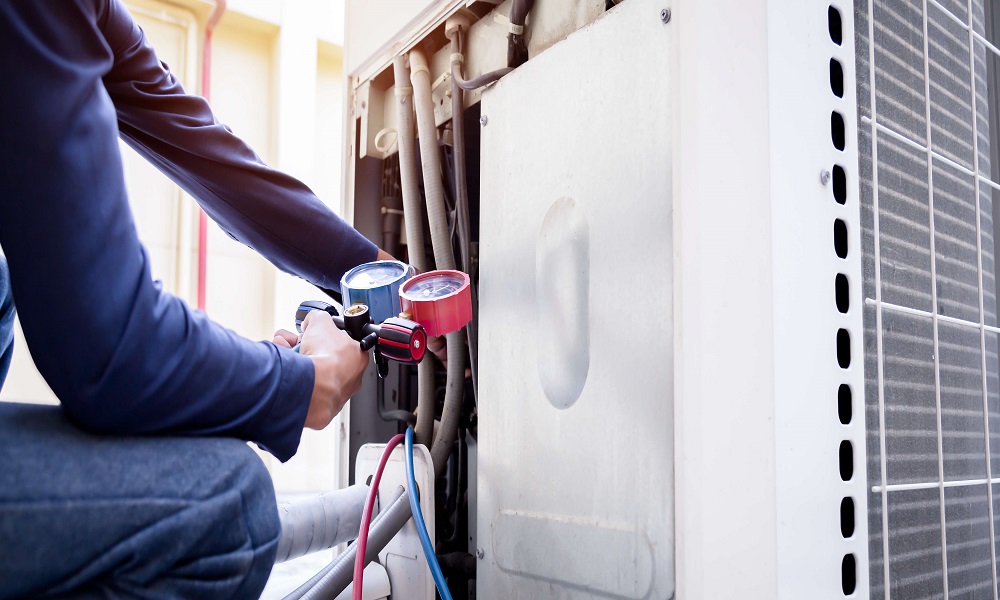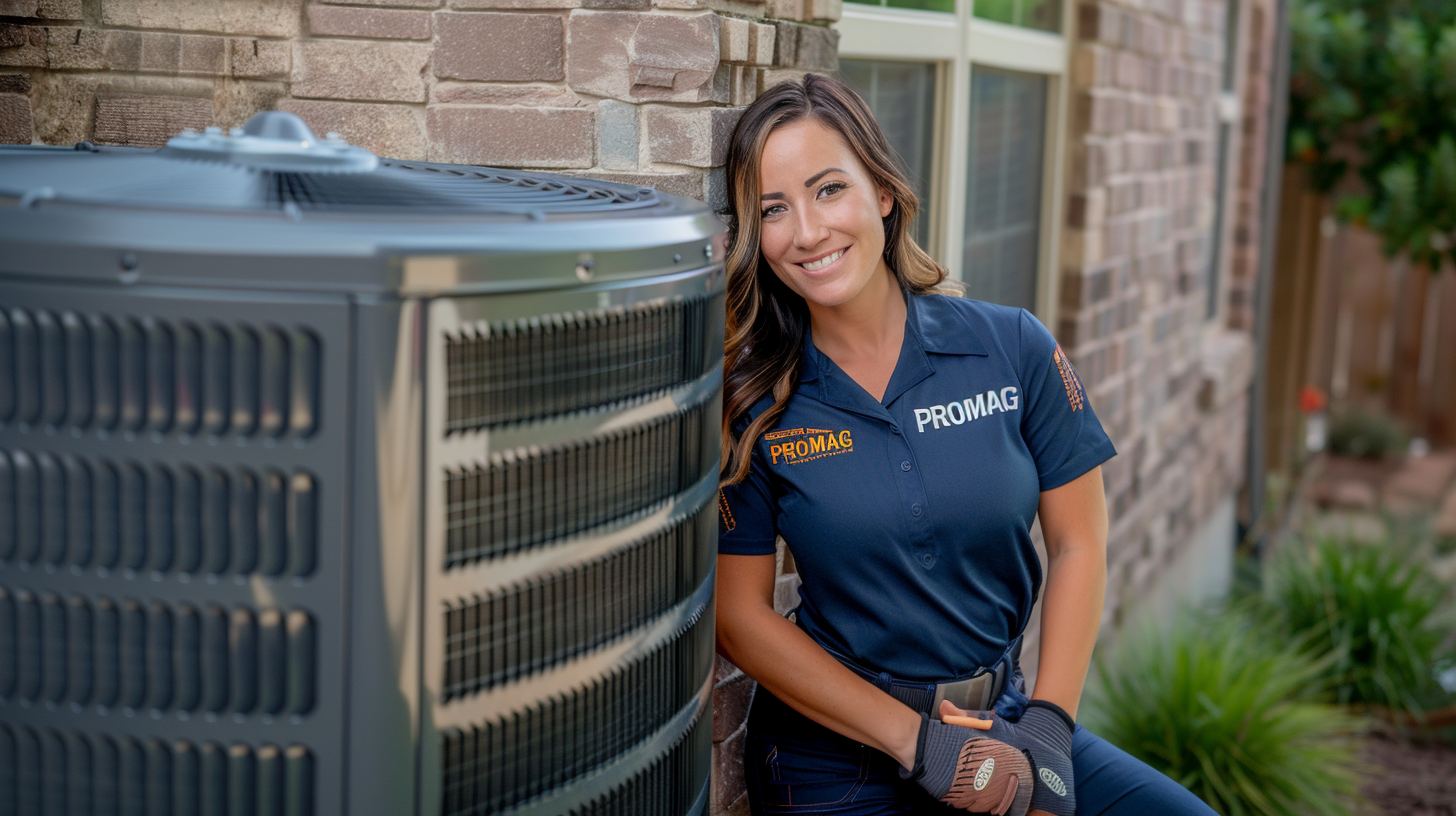Timely Heating Repairs Done Right by DMAKS HVAC Experts.
Timely Heating Repairs Done Right by DMAKS HVAC Experts.
Blog Article
Energy-Efficient A/c Systems to Save Money On Utility Costs
As energy costs continue to increase, the value of energy-efficient HVAC systems ends up being increasingly apparent. These systems not just guarantee substantial cost savings on utility costs but additionally contribute to a much more lasting future by reducing power usage.
Advantages of Energy-Efficient HVAC Solutions
Energy-efficient HVAC systems supply numerous benefits that expand beyond simple cost financial savings. One significant benefit is the decreased ecological influence. By eating much less energy, these systems add to lower greenhouse gas exhausts, helping to fight environment adjustment and promote sustainability. This aligns with enhancing societal demands for environmentally friendly methods in property and industrial settings.
In addition, energy-efficient cooling and heating systems often supply improved convenience degrees. A lot of these systems include advanced innovation that permits better temperature level control and improved air quality (DMAKS HVAC). This results in a much healthier indoor atmosphere, which is specifically important for people with allergic reactions or respiratory issues
Moreover, purchasing energy-efficient a/c systems can enhance residential property value. As more consumers focus on power effectiveness, homes and structures geared up with these systems may draw in higher bids in the realty market.
Kinds of Energy-Efficient Heating And Cooling Options
Just how can homeowners and companies pick the most appropriate energy-efficient heating and cooling alternatives for their demands? The market supplies a selection of energy-efficient a/c systems, each created to enhance convenience while decreasing power consumption.
One choice is the variable refrigerant circulation (VRF) system, which successfully regulates the temperature in several zones within a building. This system adjusts its cooling agent circulation to match the preferred temperature, resulting in considerable power savings.
One more preferred selection is geothermal warmth pumps, which use the planet's stable temperature to heat and great rooms. By transferring warmth to and from the ground, these systems demonstrate impressive efficiency, especially in moderate environments.
Additionally, ductless mini-split systems offer an energy-efficient choice for homes doing not have ductwork. These systems enable zone-specific heating & cooling, decreasing energy waste in unoccupied locations.
Last but not least, high-efficiency furnaces and a/c, with innovative SEER and AFUE ratings, use dependable environment control while taking in much less power than standard models. By examining these choices, property owners and businesses can pick a cooling and heating system tailored to their particular requirements and power efficiency goals.
Trick Attributes to Consider

Following, investigate the kind of compressor used in the system. DMAKS HVAC. Variable-speed compressors can readjust their output to match the home heating or cooling down demand, bring about enhanced convenience and power cost savings contrasted to single-speed models. In addition, search for systems outfitted with smart thermostats that use programmable settings and remote gain access to, permitting for better control over power intake
One more important attribute is the system's air purification capacity. High-efficiency filters can boost interior air like this high quality and minimize energy usage by making sure the system operates effectively. Additionally, think about the sort of refrigerant used; modern-day systems usually use eco-friendly cooling agents that have a reduced ecological effect.
Lastly, ensure that the system is compatible with zoning technology, which enables tailored temperature control in various areas of your home, enhancing comfort while decreasing power usage.
Tips for Picking the Right System


Following, take into consideration energy performance rankings, especially the Seasonal Energy Performance Proportion (SEER) for cooling systems and the Yearly Gas Usage Efficiency (AFUE) for home heating systems. Higher rankings suggest greater performance, which can cause significant financial savings on energy bills with time.
Furthermore, evaluate the kind of heating and cooling system that ideal fits your lifestyle and budget plan. Options consist of central air conditioning, ductless mini-splits, and warmth pumps, each with its own collection of advantages and downsides.
Don't forget the significance of correct setup and sizing; an incorrectly sized system can cause inefficiencies and boosted wear. Lastly, talk to a specialist heating and cooling service provider to acquire experienced recommendations customized to your home's distinct requirements. This thorough method will make certain that you select an energy-efficient a/c system that meets your demands and spending plan successfully.
Maintenance for Optimal Efficiency
As soon as the appropriate cooling and heating system is in area, ongoing maintenance ends up being essential to ensuring optimum performance and longevity. A well-kept system operates better, causing reduced power consumption and reduced utility bills. Regular evaluations and tune-ups must be arranged at the very least two times a year-- when before the cooling season and when website link before the heating season.

House owners ought to additionally be alert concerning checking their cooling and heating system's efficiency. Unusual sounds, rising and fall temperatures, or increased power costs can show underlying issues that call for immediate attention. By addressing these problems without delay, homeowners can prevent pricey repair work and prolong the life-span of their systems.
Purchasing an upkeep plan with a qualified service technician not only improves effectiveness but likewise provides assurance, understanding that the system basics is running at its ideal. DMAKS HVAC. Regular upkeep is as a result important for sustaining power efficiency and lowering general operational expenses
Conclusion
To conclude, energy-efficient HVAC systems present a feasible solution for minimizing utility expenses while improving convenience and air high quality. By including advanced technologies and options such as geothermal heatpump and ductless mini-splits, homeowner can accomplish considerable energy cost savings and add to environmental sustainability. Careful consideration of system features and ongoing upkeep even more guarantees ideal performance, making energy-efficient systems a prudent investment for both financial and eco-friendly advantages.
Report this page